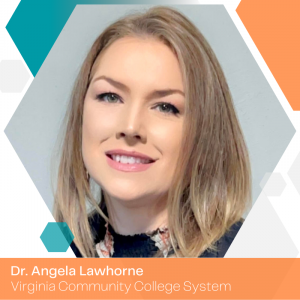This week lawmakers have continued to struggle to find consensus on how to lift the nation’s borrowing authority. In addition, significant legislation regarding postsecondary data and apprenticeships has been introduced in the House and Senate with implications for Career Technical Education (CTE) while the U.S. Department of Education (ED) announced a new round of funding for state longitudinal data systems.
 Lawmakers Agree to Meet Next Week on Debt Ceiling
Lawmakers Agree to Meet Next Week on Debt Ceiling
Since the beginning of the 118th Congress lawmakers have struggled to agree on whether and how to raise the nation’s statutory borrowing authority (known informally as the debt limit or ceiling). In recent weeks, House Republicans have advanced legislation that would dramatically cut investments in domestic programs, including the primary federal investment made in CTE by the Carl D. Perkins Career and Technical Education Act, in exchange for raising the debt ceiling through the spring of 2024. However, the legislation contains several policy provisions, including these significant funding reductions, that congressional Democrats and President Biden have indicated they will not support.
Senate Majority Leader Chuck Schumer (D-NY), in a Dear Colleague letter this week, re-emphasized Democrats’ position that the debt ceiling should be extended without preconditions and shared plans to hold hearings in the coming weeks to draw attention to House Republicans’ recent legislative proposal.
As the impasse continued this week, U.S. Secretary of the Treasury Janet Yellen wrote to lawmakers indicating that she expects the federal government to reach this limit as soon as June 1 of this year. Following her letter, President Biden invited top Congressional leaders from both parties and chambers to meet on May 9 to further negotiate a path forward.
As these efforts continue, Advance CTE will continue to closely monitor this situation and engage with partners to ensure that this process does not adversely impact federal investments in CTE as part of the ongoing federal fiscal year 2024 (FY24) budget and appropriations process.
House Lawmakers Introduce Apprenticeship Proposal
A bipartisan group of House lawmakers led by House Education and the Workforce Ranking Member Bobby Scott (D-VA) and Representative Brian Fitzpatrick (R-PA) introduced the National Apprenticeship Act of 2023— legislation that would comprehensively update, for the first time since 1937, the primary federal law that authorized registered apprenticeship programs (RAPs). If enacted, the law would codify and update existing RAP regulations while providing more than $3.8 billion in funding for the expansion of these, and related programs, for new occupations and a wider array of learners. Notable for the CTE community, the legislation would also formalize expectations for pre- and youth-apprenticeship programs which often serve as on-ramps from education into RAPs. More information about the bill can be found here, including a related factsheet and bill text. Advance CTE has endorsed and supported versions of this legislation in previous Congresses.
Elsewhere, the U.S. Department of Labor is hosting a listening session today, May 5, to receive input from the public regarding improvements and enhancements that can be made to the existing RAP system. More information regarding this opportunity can be found here.
Postsecondary Data Modernization Bill Reintroduced
Earlier this week a bipartisan group of Senators, led by Senate Health, Education, Labor and Pensions Ranking Member Bill Cassidy (R-LA) and Senator Elizabeth Warren (D-MA), and a bipartisan group of House lawmakers, led by Reps. Krishnamoorthi (D-IL) and Joe Wilson (R-SC), reintroduced the College Transparency Act (CTA). This legislation would make much needed reforms to the nation’s postsecondary data reporting system.
Advance CTE has long supported and endorsed this legislation, which would overturn an existing ban on the creation of a postsecondary student unit record system– a feature of current law that greatly diminishes the ability to understand postsecondary outcomes for many learners. The legislation would make several other data improvements that would increase transparency, improve the timeliness of this information and enhance the accuracy of the data that is collected from postsecondary institutions. These improvements would ensure that consumers, and the wider public, have better access to the data to make more informed decisions regarding postsecondary education and training. A factsheet on the bill can be found here and the full text, as introduced this week, can be found here.
In other postsecondary data developments, the U.S. Department of Education (ED) has recently updated the College Scorecard. This year’s scorecard now features four years of earnings data for program completers, includes new demographic data and expands data collection to cover graduate programs. A recent ED blog further details these updates here.
ED Announces New Rounds of SLDS Funding
Earlier this week, the U.S. Department of Education (ED) announced the availability of a new round of State Longitudinal Data System (SLDS) Grant program funding. These resources are intended to support states in developing and modernizing SLDSs to improve the utility of student-level data and develop more cohesive and comprehensive P-20W (early education through workforce) data systems. This latest round of grants will promote four priorities for proposals and projects that seek to improve data infrastructure and interoperability, college and career, school finance and those that support various state-level policy concerns. Only state education agencies may apply for funding and they must express interest in doing so by May 19. More on how to apply for funding can be found here.
In addition, the Data Quality Campaign, in partnership with Advance CTE and many other national organizations, released a new vision for transforming SLDSs this week, which includes actionable use case examples and provides policy suggestions for improving state data systems and promoting integrated, interoperable and linked data.
Steve Voytek, Policy Advisor


 Advance CTE Board President Testifies Before Congress
Advance CTE Board President Testifies Before Congress  Dr. Angela Lawhorne
Dr. Angela Lawhorne Nancy Ligus leverages her
Nancy Ligus leverages her  Leisa Mathews’
Leisa Mathews’  Without Limits: A Shared Vision for the Future of Career Technical Education
Without Limits: A Shared Vision for the Future of Career Technical Education